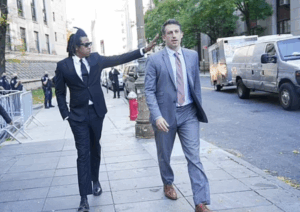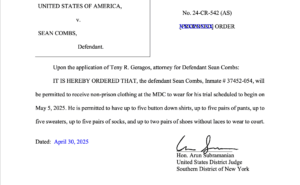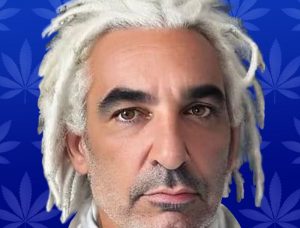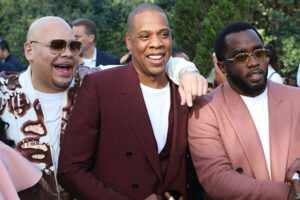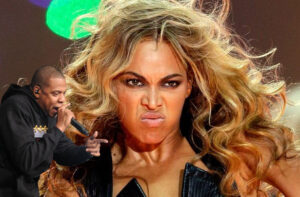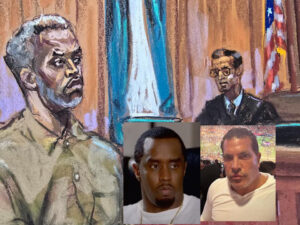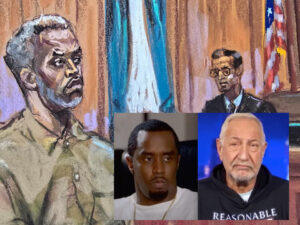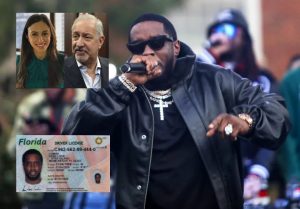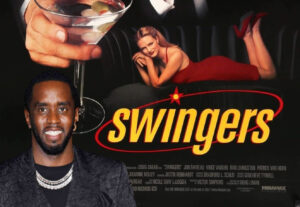B.J. Courville, the face behind the YouTube channel That Surprise Witness, repelled recent allegations accusing her of igniting claims about Jennifer Lopez's involvement in a legal case against Sean ‘Diddy’ Combs and Jay-Z. In a lengthy rebuttal, Courville criticizes major media figures like Nancy Grace and accuses them of spreading false narratives and collaborating in a “nefarious PR campaign” aimed at discrediting her and stirring backlash surrounding the case.
"B.J. Courville Defends Against Media Firestorm Over Diddy Lawsuit Connections"
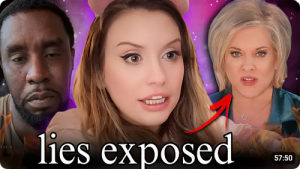
"B.J. Courville Defends Against Media Firestorm Over Diddy Lawsuit Connections"
Digital journalist B.J. Courville of That Surprise Witness confronts accusations linking Jennifer Lopez to Sean Combs and Jay-Z's controversial case, decrying media manipulation.
B.J. Courville, the intelligence behind the sought-after YouTube channel That Surprise Witness, has taken a strong stand against allegations that implicate her in exposing Jennifer Lopez as 'Celebrity B' linked to a lawsuit against Sean ‘Diddy’ Combs, spearheaded by attorney Tony Buzbee on behalf of an unidentified plaintiff, Jane Doe. In a heated nearly one-hour rebuttal video, along with supportive Retraction Demand Letters, Courville criticized Nancy Grace for categorizing her as a “drunk commentator.”
The uproar ignited on December 18 when That Surprise Witness released a video relating to the Diddy and Jay-Z lawsuit. Courville regards the media response as “insidious and terrifying,” emphasizing that the rumors attributing the blame to her were unfounded. She refutes the claim that her channel initiated a media frenzy around Lopez, stating, “This is literally defamatory stuff about me and JLo.” Courville also pointed fingers at media articles that allegedly misrepresented her quotes and connections, labeling them a “nefarious PR campaign.”
In her detailed rebuttal, Courville unravels what she sees as an intentional misrepresentation orchestrated by the establishment media. She references moments from a press conference involving Alex Spiro, who named Jennifer Lopez in court filings, asserting, “They put it on the front page of the Google search results,” effectively cross-referencing her name with false narratives.
Alongside her video, Courville announced Retraction Demand letters to various media outlets implicated in the misinformation. She expressed outrage over how articles erroneously linked her to controversy, aggravating her concerns about the media landscape’s integrity. The removal of a video by Grace, which she perceives as a personal attack and misquotation, fueled her determination to shed light on the “modern-day warfare” embroiling independent journalists against established figures.
The significance of these events is compounded by the broader implications for independent media voices challenging established narratives around powerful figures like Sean ‘Diddy’ Combs and Jay-Z. As Courville articulates, “This feels like a setup,” and voice acting against powerful media campaigns has become increasingly necessary.
Her challenges highlight ongoing systemic issues within media portrayals of alleged celebrity misconduct, calling into question the reliability of narratives constructed by major media figures, including Grace. Courville folds her narrative into a much larger conversation about accountability and the persistence of independent journalism in the age of disinformation, stating, “Thanks to independent media, the public is no longer as vulnerable to establishment media narratives.”
As the investigation unfolds, Courville urges anyone with further insights on Nancy Grace, alleged misdeeds, or any related information to reach out, reiterating the importance of transparency and integrity in media coverage. This ongoing saga serves not only as a commentary on the specifics of the Diddy lawsuit but also as a reflection on the power dynamics shaped by media narratives in today's culture.


